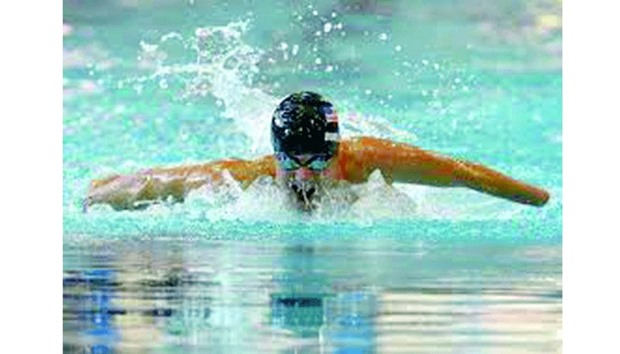Breaking a big toe voluntarily, injuring already damaged limbs in order to stimulate blood pressure...self-mutilation or ‘boosting’ is a unique and sinister challenge for the organisers of the Paralympics to confront.
An even more delicate matter is charges that some Paralympians have exaggerated how handicapped they are so they can have an easier category at the quadrennial sporting showpiece in Rio from Wednesday until September 18.
‘Boosting’ is the preferred method of those with spinal injuries for aside from paralysis and loss of feeling in their limbs they suffer often equally from problems associated with blood pressure and irregular heart rhythm.
As a result when they are in the midst of competition their heart rate does not increase to the level required by the demands generated by their body. Bad performances emanate from a fatigue linked to lack of very low blood pressure amd a lack of stamina.
Certain athletes resort to drastic measures to aimprove their performances, self mutilating their already damaged limbs, the advantage being they do not feel the pain as the nerves are dead. This increases the level of blood pressure, improving the flow of blood to the muscles and logically the end result are better performances.
Some go to extreme lengths using electric shocks, explicitly wearing far too tight shorts to up the blood pressure in the lower limbs, twisting their testicles...the horror stories are never-ending.
The findings of a study undertaken a few years ago by the World Anti-Doping Agency (WADA) and the International Paralympic Committee (IPC) makes frightening reading.
“Despite being conscious of the dangers to their health, 16.7% of the participants in the study indicated they had resorted to boosting either in training or in competition,” read the report with regard to the statistics of 2008 and 2009.
Statistics regarding athletes who have cheated in over exaggerating their handicap are far less accessible and a tremendously delicate border to breach.
The Sunday Times revealed last weekend that cerebral palsy sufferer Bethany Wood, who won silver and bronze in the athletics at the London Paralympics in 2012, was boycotting the renewal in Rio because she believes less disabled athletes were being given the green light to compete in her category.
This practics is called Intentional Misrepresentation.
Swimming especially has come under suspicion that participants deliberately swim slower when they are being classified — they are inspected both in and out of the water — and then give their real performance that they are capable of when they get to compete.
The worst case of this occurring came at the 2000 Games in Sydney when the Spanish basketball team were stripped of their gold as 10 of the 12 man squad had exaggerated their mental disability under instructions from the head of the national Mentally Handicapped Sports federation — to qualify you have to have an IQ of 70 or lower which was the case for only two of them.
However, they were only exposed because one of their number Carlos Rigaborda wrote about it, for the IPC exposing athletes as being cheats is very treacherous territory as Peter Van der Vliet, their medical and scientific director, told The Times on Monday.
“Whether we like it or not, we have to prove intent to a standard that can be upheld against legal challenge,” he said.
“There is a significant concern of attempts from athletes to bypass the system. But the threshold to prove these cases beyond any reasonable doubt is very high.”
With regards to the concerns expressed specifically over swimming Van der Vliet says it is not so black and white as made out.
“We are put in a position where we have to prove intent and some of the concerns relate to (competitors) swimming slower for some CP (cerebral palsy) profiles,” he told the newspaper.
“We run different checks and balances when there are fluctuating times recorded, but the nature of the impairments means that an athlete’s condition can be different by the day.”
Paralympics organisers hope for sell-out
Rio 2016 Paralympics said 1.5mn Tickets had been sold and they hope that all 2.5mn will go.
The Games have been overshadowed by financial worries and the slow sale of Tickets. But organisers have reported a dramatic turnaround in sales since the end of the Rio Olympics on August 21.
At that stage only 300,000 Tickets had been sold. But on Monday, organisers said in a statement the “Games achieved an important milestone as it reached 1.5 million Tickets sold.”
They added: “While there are still around one million Tickets available the rhythm of sales suggests that all the 2.5 million Tickets will be sold.”
Organisers said the Olympics and hopes for Brazilian gold medals had boosted sales. “Now we see people, look for specific athletes and scheduled duels,” said Rio 2016 spokesman Mario Andrada.
Brazil are aiming for a top-five place in the medals table and have several hopes in the Paralympics athletics, including Odair Santos who could get their first gold in the 5,000m on Thursday. The Games start today with more than 4,300 para-athletes scheduled to take part in 22 sports.

Swimming has come under suspicion that participants deliberately swim slower when they are being classified and then give their real performance that they are capable of when they get to compete. (AFP)
